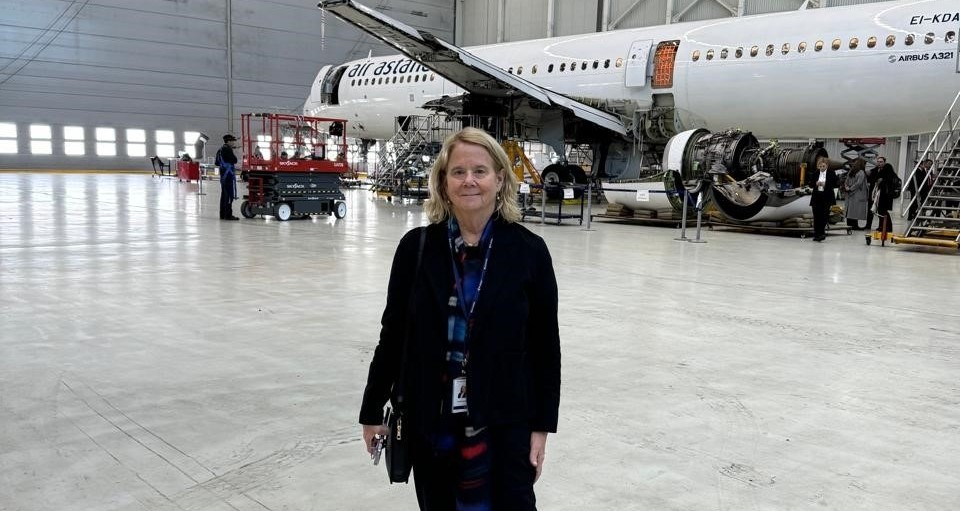These cookies cannot be disabled. They are essential for core functionality in ebrd.com to ensure a seamless and secure experience.
I became involved with Air Astana during my time as Country Director of Kazakhstan when in 2015 the EBRD financed the Astana aircraft hangar project which was featured in the film shown in the EBRD annual meeting in Sarajevo in 2019. The film contrasted the range of EBRD projects going from the Egyptian desert heat with the Ben Ban solar project to the Astana where the hangar had to be designed to work in temperatures as cold as minus 50c.
Being on the other side of the table responsible for all aspects of a company’s operations is a totally different experience from being the banker looking at specific transactions, particularly in an industry like air transportation where customers’ lives are at stake. On joining the board, I never could have imagined the challenges that Air Astana would face over the next three years.
In 2019 the board worked very closely with management to improve the liquidity and cash balances of the airline to position for a possible IPO. This was fortunate, as almost immediately after our February 2020 board meeting the worldwide Covid-19 lockdown began, and a strong liquidity position ensured Air Astana would survive without the need for shareholder capital injections.
Decisions facing management and the board included how to reduce costs without impairing the airlines’ ability to recover quickly when air travel restarted, how to support staff and whether to reposition for cargo/other opportunities. Ultimately, as business travel was very slow to recover, the airline was able to reposition itself as a leisure airline until business routes returned.
Just when business began to return to normality, political events in January 2022 in Kazakhstan and the Russian war on Ukraine in February 2022 caused a complete reworking of routes and business plans. Ukrainian and Russian routes had accounted for over 40 per cent of Air Astana’s business.
One of the key strategic developments was the decision to start the low-cost airline Fly Arystan. Part of the change in strategy was the set-up of a low-cost carrier in Kazakhstan fully owned by Air Astana.
On 15 February 2024, Air Astana successfully completed its IPO and was the first Kazakh company to list simultaneously internationally and domestically on the London Stock Exchange, Kazakhstan Stock Exchange and Astana International Exchange. The size of the Air Astana IPO was US$370 million and was the first IPO to reduce the government stake below 50 per cent. The EBRD invested US$ 42 million (for a 5 per cent stake) in Air Astana, with commitments to play a key role in decarbonising Kazakhstan’s aviation industry.
Despite all the Covid-19 and geopolitical issues it’s been an exciting six years, with Air Astana growing into one of the leading airlines in Central Asia and the Caucasus, operating 94 routes across 21 countries. The company has demonstrated a strong commitment to the environmental, social and governance agenda with an outstanding track record in health and safety, social responsibility and governance.
In addition to the equity stake, Air Astana and the EBRD are working together on advisory and financing for sustainable supply chains and on low-carbon development plans.
Reflecting on my experience at the EBRD, I can see how useful it was in allowing me to contribute as an INED to the development of best practices to prepare Air Astana for its IPO.




